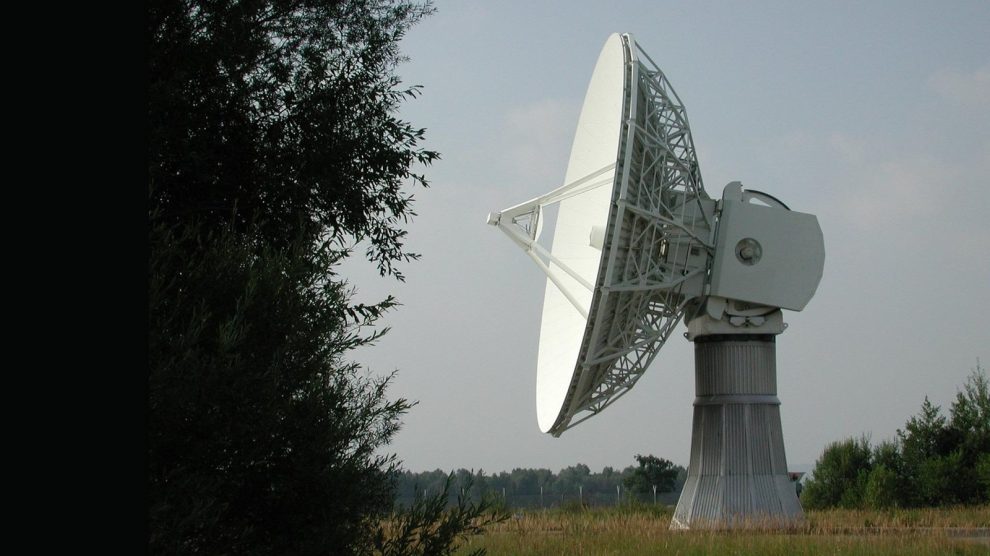IN A MAJOR announcement today (Dec 2) the Defence Secretaries of Australia, the United Kingdom, and the United States have unveiled the Deep Space Advanced Radar Capability (DARC) programme – and one of just three sites chosen worldwide for this hi-tech system will be in Pembrokeshire, at Brawdy. This pioneering initiative aims to significantly bolster the defence capabilities of AUKUS nations (Australia, the UK, and the US) by providing 24/7, all-weather capabilities to monitor objects as far as 36,000 kilometers away from Earth.
The Cawdor Barracks in Pembrokeshire, Wales, have been earmarked as the preferred UK site for this state-of-the-art deep space radar, subject to a comprehensive Environmental Impact Assessment and Town Planning approval. The DARC programme is set to transform UK security, improving our ability to detect, track, and identify objects in deep space.
As the world faces increasing threats of space warfare, this development is a timely enhancement to the defence capabilities of the AUKUS nations. The global network of three ground-based radars, to be jointly operated, will play a critical role in space-traffic management and the surveillance of satellites in deep space. The geographical positioning of the AUKUS nations allows for unparalleled global coverage, including the detection of potential threats to defence or civilian space systems.
UK Defence Secretary, Grant Shapps, emphasized the importance of this initiative: “As the world becomes more contested and the danger of space warfare increases, the UK and our allies must ensure we have the advanced capabilities we need to keep our nations’ safe. Today’s announcement of a global radar network (DARC), based across the UK, US, and Australia will do just that, empowering the UK to detect, track, and identify objects in deep space.”

The selection of Cawdor Barracks, which currently houses a British Army Signals Regiment scheduled to relocate from 2028, is expected to bring significant economic benefits to the local Pembrokeshire economy. The project promises job creation during the construction phase and is projected to provide up to 100 longer-term jobs.
The DARC programme also extends beyond defence benefits. It is equipped to monitor and protect essential services that rely on space-based satellites, including communications and navigation systems crucial for daily life. This capability is vital for AUKUS’ commitment to maintaining peace and deterring conflict globally, particularly in the Indo-Pacific region.
Secretary of State for Wales, David TC Davies, hailed the project: “The proposed DARC project will provide jobs and bolster the local economy, underlining the vital role that Wales continues to play in the UK’s defence.”
Stephen Crabb MP, speaking to The Herald on Friday, said: “The Cawdor Barracks site was always a strong contender for this project…The 100 new jobs would certainly be welcome but won’t fully fill the gap if the Signals Regiment does eventually move out.”
Local councillor for Brawdy, Mark Carter said that he was in favour of the development.
He said: “As long as we can confirm that there are no health implications for the local residents I am in favour of this being in Pembrokeshire.
“It will have a positive economic impact during both the construction phase and over 100 long term jobs.”
The first DARC radar site, currently under construction in Australia, is slated to be operational by 2026, with all three sites expected to be fully operational by the end of the decade.
This development follows the signing of a Memorandum of Understanding in September 2023 and is a key component of the UK’s Defence Space Strategy, enhancing collective space domain awareness – a critical objective for national security.
AUKUS, a landmark security and defence partnership, is set to benefit significantly from DARC, marking a significant step forward in delivering enhanced security capabilities among the partner nations and supporting a free and open Indo-Pacific region.
However, the new American military branch, US Space Force, established by former president, Donald Trump, has been criticised as an unwise and costly escalation that could lead to a dangerous new arms race.
A spokesperson for the Campaign Against the Arms Trade said the plans were “totally misguided” and that the money would be better spent on reducing poverty.
“The huge sums of money involved would be far better spent building fairer and more equal societies here rather than further militarising space,” they said.
The stations, covering around a square kilometre, would host an array of large radar dishes, known as parabolic antenna, each 15 metres in diameter.
The US already operates an early warning system to detect ballistic missiles in space, which includes a facility at RAF Fylingdales in North Yorkshire. However, that can only detect objects up to 12,000 miles away while DARC would look much further into space.
Joe Mozer, chief scientist at the US Space Force, said: “We must overmatch our strategic competitors.”


















